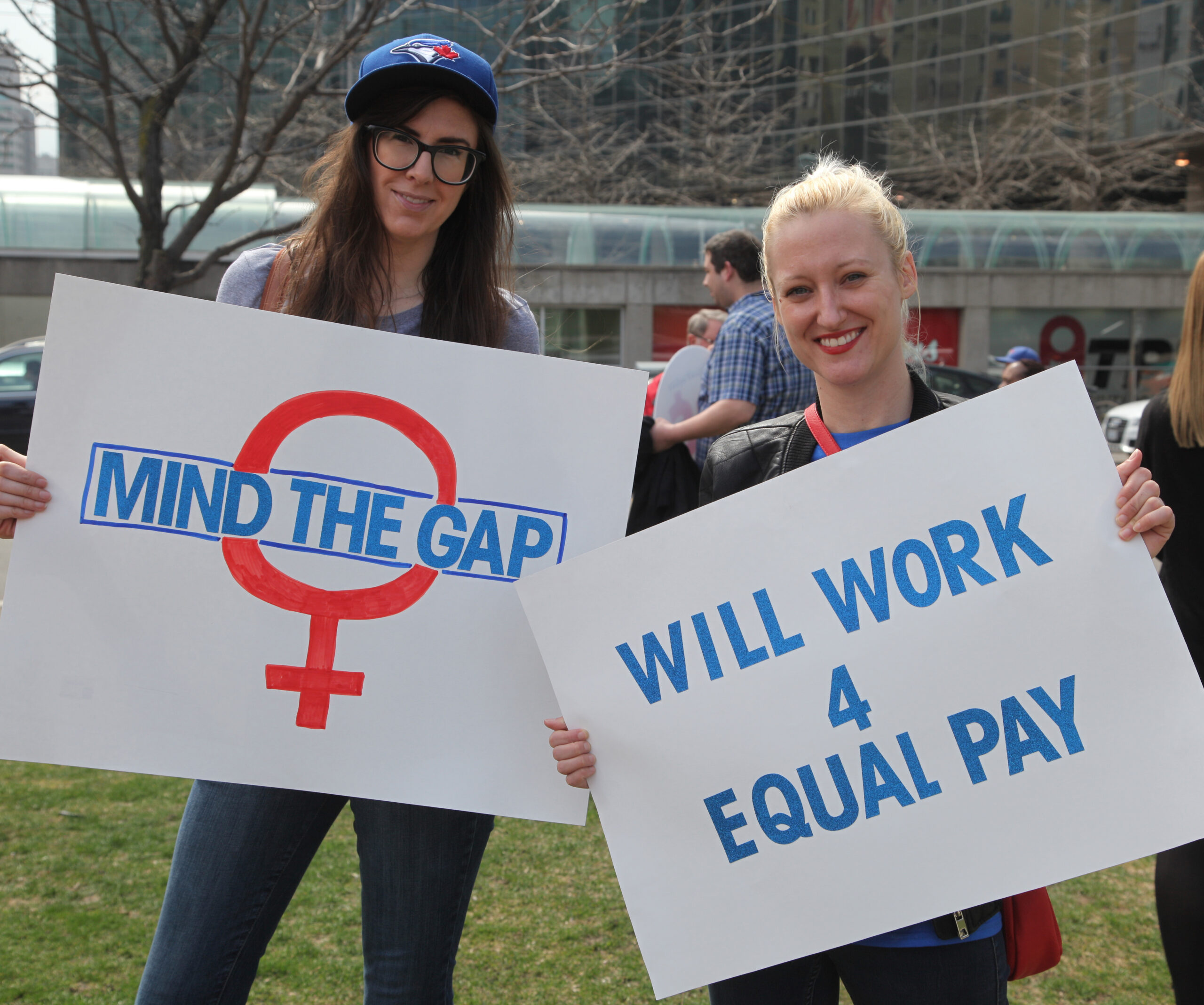
If you’re a working woman reading this, we have some shocking news for you.
You should be leaving work at 3:50pm each day. Not 5pm. Or 5:30pm, or even later, which we know many of us are guilty of.
That’s because Australian women, on average, are paid 14.1 per cent less than men, according to the current gender pay gap statistics.
So if you work full time, you’re only being paid properly from the hours of 9am untiil 3:50pm.
From 3:50pm until 5pm, or whenever you clock off for the day, you’re effectively working for free.
But don’t go crying into your rosé just yet.
The good news is that figure is the lowest it’s ever been. The pay gap has been hovering around the 15 to 19 per cent mark for the past two decades.
We’re making awesome progress, but there’s still a long way to go.
Here’s everything you need to know about the gender pay gap in Australia.
QUIZ: How financially literate are you? Take the quiz to see how much you know about your personal finances. To sharpen your finance knowledge, be sure to check out Bauer’s Financially Fit Females hub.
What does the gender pay gap actually mean?

Women are fighting to be paid the same as men. (Image: Getty)
“Women are not equally represented in the workforce to begin with and they’re earning lower rates than men,” Janelle Weissman, executive director of UN Women National Committee Australia, told Now To Love.
“But even when we compare full time earnings, there is still a gap,” Ms Weissman said.
That 14.1 per cent figure we mentioned earlier is the difference between men and women’s average weekly full time wages, expressed as a percentage of men’s earnings.
In dollar figure terms, the average full time male worker earns $1695.60 a week while the average full time female worker earns $1455.80 a week.
“On average, women earn $239 per week less than men do,” Ms Weissman said.
“Men who work full time earn about $25,000 more than women who work full time.”
READ NEXT: Everything you need to know about International Women’s day 2019
Why is this still happening?

“Women are not equally represented in the workforce to begin with and they’re earning lower rates than men.” (Image: Getty)
There are several reasons why women earn less than men:
1. There are more women working lower-paid jobs
“Gender stereotypes tend to drive women and men in different jobs. Women are over-represented in lower earning positions,” Ms Weissman said.
This means lower-earning jobs such as nurses, teachers, carers and cleaners tend to be filled by more women that men, whereas high-paying jobs such as those in finance, mining/resources and technology tend to be occupied by men.
2. Not enough women in management and leadership positions
Only 11 of Australia’s top 200 companies have female CEOs. Fewer women run top Australian companies than men named John, Peter or David.
“We still don’t have enough women in the top leadership jobs and that’s a problem because women need to see role models to have them feel like they belong,” SEEK’s group HR director Kathleen McCudden told Now To Love.
“Women need to be mentored by people who are similar to them. It’s a self perpetuating issue,” Ms McCudden said.
“Business leaders need to actively hire and promote women into leadership positions.”
According to data from SEEK, 55 per cent of Australian job candidates actively look for companies that have measures in place to promote gender equality.
However, one in 10 men said companies with women in leadership roles would negatively influence them to apply for a role.
3. Women don’t ask for pay rises or negotiate salaries like men do
“The evidence suggests that women are less comfortable negotiating pay and holding the ground on what they’re worth,” Ms McCudden said.
“Men are far more comfortable raising any issues and negotiating pay and also when they’re joining a new job, asking for what they’re worth.
“Pay is a topic that women are less comfortable with and that has to change.”
4. Unconscious bias
Many of us have subconscious ideas about what jobs men and women can do. Even if we don’t actively think about it, sexism is so ingrained into our brains that it can be hard to reverse.
“All human beings have unconscious bias,” Ms McCudden said.
“There’s nothing we can do about it. It’s built into our DNA. What unconscious bias does is it can prevent people from making decisions about who should get the job based purely on experience and merit.”
This means that some managers may think that women deserve to be paid less than men because they’re less competent. It’s confronting, but explains why many men and women doing exactly the same jobs are often paid different wages.
“We do know that it’s not uncommon for women to be paid less than men in like-for-like jobs,” said Ms Weissman.
“There are a number of companies like PwC which have been incredibly transparent in saying ‘We have identified a like-for-like gap and we’re working to close it’.”
So, how do we fix it?
“You can’t remove unconscious bias but the best organisations recognise it and put in place strategies to mitigate it. For example, if you’re hiring a senior role, makw sure the hiring panel has good gender representation when interviewing candidates,” Ms McCudden said.
WATCH BELOW: Lisa Wilkinson on the pay gap
What can women do to reduce the pay gap?

Only 11 of Australia’s top 200 companies have female CEOs. (Image: Getty)
Asking for a pay rise is one practical way we can increase the amount women are paid.
But it’s super scary! So Kathleen McCudden from SEEK has three awesome tips.
1. Always do your research and be well informed about what your worth is in the market.
Use websites like Glassdoor or SEEK’s tool Company Review to check out salaries for jobs similar to yours.
Talk to recruitment agents and ask your peers and friends about how much they earn.
Talking about money can be tricky, but information is your friend.
2. State the facts to your employer
Make sure you make your case really simply and clearly. Try not to be emotional about it, because this is a fact-based conversion.
Never get argumentative and never act in an adversarial way.
3. Hold your ground
If you feel like you have a strong case, ask your manager to think about what you’ve said and get back to you once you’ve given them the information they need.
They might compare what you’re paid compared to others and realise you have a strong case for a pay increase.
Want more International Women’s Day info?
Everything you need to know about International Women’s Day 2019
Australia’s gender pay gap explained
8 things to do with the kids this International Women’s Day
OPINION: “On this International Women’s Day, I want it all… just not at once!”
Meet our most inspiring everyday Aussie women
The leading ladies of Neighbours’ on the show’s all-female International Women’s Day episode


